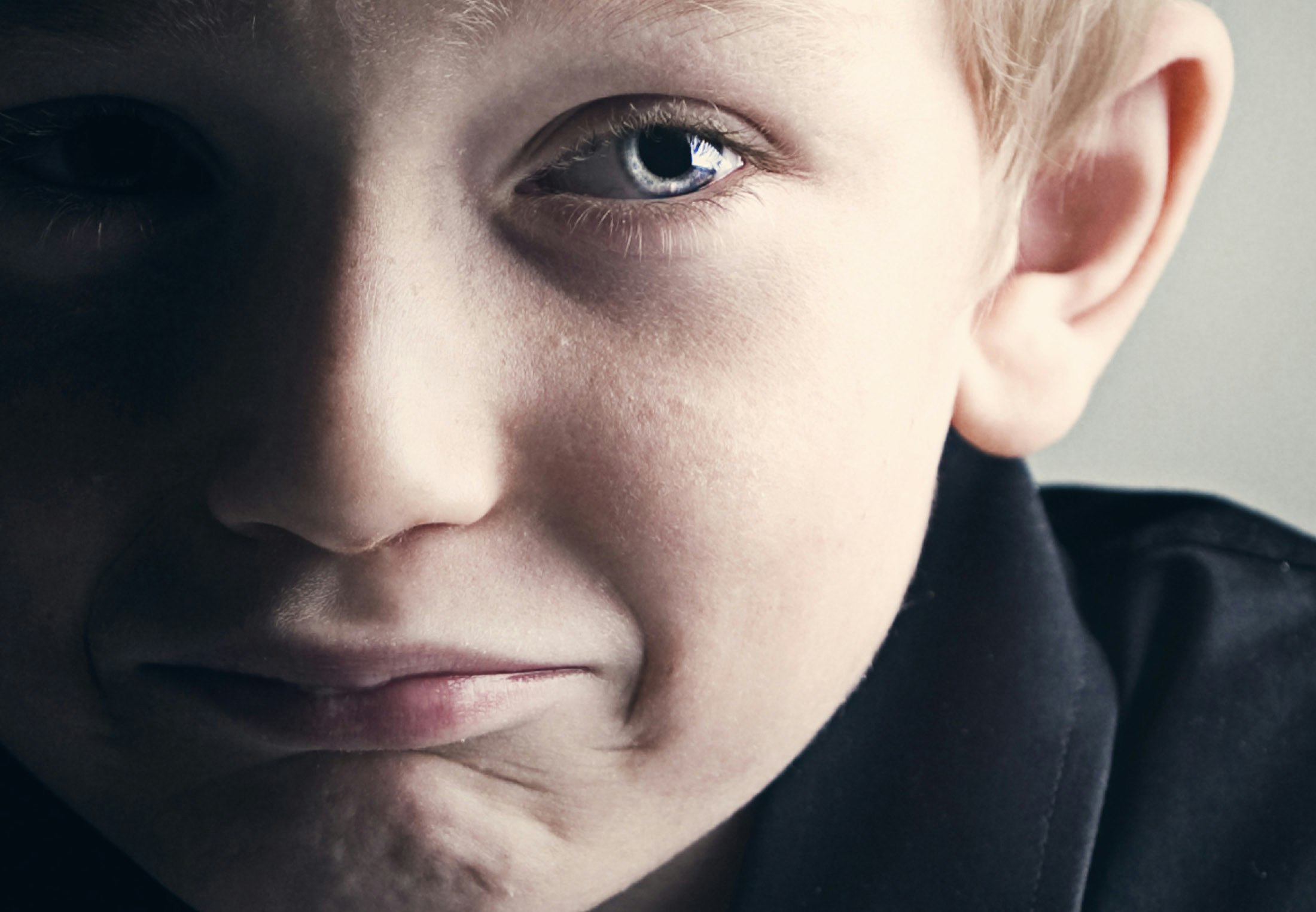Are you doing the right thing? As a parent, you want to give your child a good start in life. That is still the case in the first year – although it is not always easy. That little bundle of joy has to be met with all its needs, and all attention is welcome. But then that changes.
Around the age of two, children develop self-awareness and social and moral understanding, pride and shame. They also become aware of their own
needs and realize that they can manipulate their parents with charm, anger or tears.
Toddlers explore their limits, and as a parent you should not only set them, but also guard them. You are raising your child – well into the teens.
—
Many parents are unsure about this upbringing. Most would like their children to become self-reliant and learn to achieve their goals, but they also need to learn to be considerate of others.
A lot of questions arise. Should you keep your child out of the wind or should you introduce adversity and defeat? As a parent, should you remain deeply involved in your child’s life, or should it quickly stand on its own two feet?
These questions are now more important than ever. Parents are spending more time with their children than before – about six hours a week more than 40 years ago. And online you can read differing and often fierce opinions on the subject.
Fortunately, science has joined the debate, and new research is showing what kind of parenting gets kids off to a good start in life — and what kind leaves lifelong scars on the brain.
—
Researchers sort parents
The American developmental psychologist Diana Baumrind distinguished four types of parents in 1966, and that system is still in vogue. Parents are judged on whether they make demands of their children and whether they pay attention to them, i.e. whether children receive warmth and confirmation.
Two of the parent types make demands on their children, but each in a different way. The so-called authoritarian parents command their children, tell them exactly what to do and punish them if they do not do the right thing – verbally or physically. These parents do not pay attention to the needs of the children and do not enter into discussions with them.
The so-called authoritative parents also make demands, but are open and accommodating. They not only tell the children what to do, but also explain why and how, and are ready to help if the child has doubts or problems.
—
The last two types of parents make no demands. Permissive parents care deeply about children’s needs and go to great lengths to meet them. They feel sorry for the children to set demands and limits, and they cannot compete with their children if they are disobedient.
Uninvolved parents don’t set limits on the kids because they basically don’t care. They put themselves first and hardly look after their children.
The most common approach according to an American study is the authoritative one, whereby parents are demanding but pay attention to the children. 47 percent of parents use this method.
In second place is the old-fashioned authoritarian approach at 24 percent – and that worries many researchers. According to several studies, it is disastrous if you expect complete obedience from your children but are deaf to their opinion.
—
Anger Causes Lifelong Scars
In 2021 Canadian scanden researchers the brains of 94 children who had been brought up in varying degrees of strictness.
The more strict and disciplined the children were raised, the smaller their frontal lobes were, the scans showed. These areas of the brain play a vital role in personality and the ability to think, plan, self-control, and judge what is right and wrong.
The amygdala, a brain region that controls fear and immune responses, was also smaller in the children of very strict parents. In addition, psychological research showed that these children were anxious.
—
American researchers reached similar conclusions in the same year. They studied children who had been beaten but had not been subjected to other violence or abuse.
The brains of the children appeared to respond more strongly to images of frightened faces than the brains of children who had never been physically punished. An authoritarian upbringing thus negatively influences children’s response to fear.
—
In general, there is strong evidence that authoritarian parenting is harmful.
Children are often aggressive under stress and unable to contain their anger, have low self-esteem, perform poorly in school, and have difficulty forming relationships with other people. They are also at increased risk of becoming addicted to drugs, developing depression and committing suicide.
—
Requirements give joy of life
The vast majority of researchers regard authoritative parenting as the method that produces the most harmonious and best-functioning children. And luckily, it’s also the most popular method among parents.
Authoritative parents give their children a lot of love, interest and respect, but at the same time they set limits and demands.
They rarely swear, but consistently alert their children to bad behavior and take the time to explain why their behavior is not acceptable. In this way, children understand what they have done wrong and are more motivated to behave better.
Authoritative parents also listen to their children and give them more options – for example, if they really don’t like dinner, they can make it themselves. And children are allowed to play outside, as long as they understand that it is their own responsibility to do their homework.
—
However, the authoritative method is not always easy to perform, especially with adolescents. Rebellion and apathy are part of their natural development, and it can be difficult to assert yourself by appealing to common sense.
For example, if parents want their teen to be home by 10 p.m., they may want to slam their fists on the table by banning late arrivals and threatening appropriate punishment.
But overall, the approach is workable – and it’s the researchers’ favorite for a reason: Children raised in this way tend to develop better social relationships, are educated longer, have fewer mental health problems, and generally cope better. life than other children.
—
Your kids are not your friends
Many parents who love their children dearly and want the best for them in life find it difficult to set boundaries. These are the permissive parents, which includes 19 percent of American parents.
They want their children to see them as friends rather than authorities. They let the kids get away with it if they don’t do their homework and often help so much that kids can’t get their own experiences.
This type of parent sometimes falls into the category of curling parents, who do their best to clear obstacles for their child. For example, they can harass teachers with special requirements for the child.
—
Several studies show that a curling education is not optimal. For example, children have more difficulty with conflicts to cope, and an increased risk of becoming self-absorbed or depressed to become.
In a Swedish 2015 study researchers showed that teens raised by permissive parents were more likely to drink alcohol than teens raised with authoritative parenting.
The children of permissive parents were also more likely to smoke and experiment with hashish and others drugs.
The explanation is probably that the children lack self-discipline, make unrealistic demands and become insecure when they have to stand on their own two feet.
—
However, the line between authoritative and permissive parenting is thin, as it can be difficult to determine when benevolent parents provide so much help that they are essentially depriving their child of responsibility.
Suppose, for example, that a child has difficulty with mathematics and does not get the exercises correct, even though the parents have constantly explained how the exercises should be done.
They are then faced with the choice of sending the child to school with an incorrect solution that they have come up with themselves, or with a correct solution that the parents have dictated without the child understanding it.
—
The permissive parents usually want to protect the child and prevent it from failing in school. So they will dictate the correct solution. Authoritative parents, on the other hand, will tell children to learn from their mistakes and send them to school with the wrong solution.
The latter choice can be difficult, but seems to be best for the child in the long run.
Despite the drawbacks of the curling method, researchers consider it the second best of the parenting methods. It is therefore better for children than the authoritarian approach. And there’s a good reason for that.
—
Caring is in the DNA
In any case, curling parents are loving and attentive, and they care deeply about their child’s well-being. And that makes a deep impression on the child.
A safe environment, sweet words, a hug or a bedtime story trigger a torrent of the so-called love hormone oxytocin in the child. This hormone is released from the brain and affects a number of organs, including the brain itself.
The result is a sense of joy and confidence so deeply entrenched in the child’s cells – through chemical changes in the DNA – that it can last a lifetime and even be passed on to the next generation.
In the jumble of different parenting tips, there is one rule of thumb that never fails: make your child feel loved.
—


:quality(80)/cdn-kiosk-api.telegraaf.nl/2411d7d6-1036-11ed-8951-02c309bc01c1.jpg)